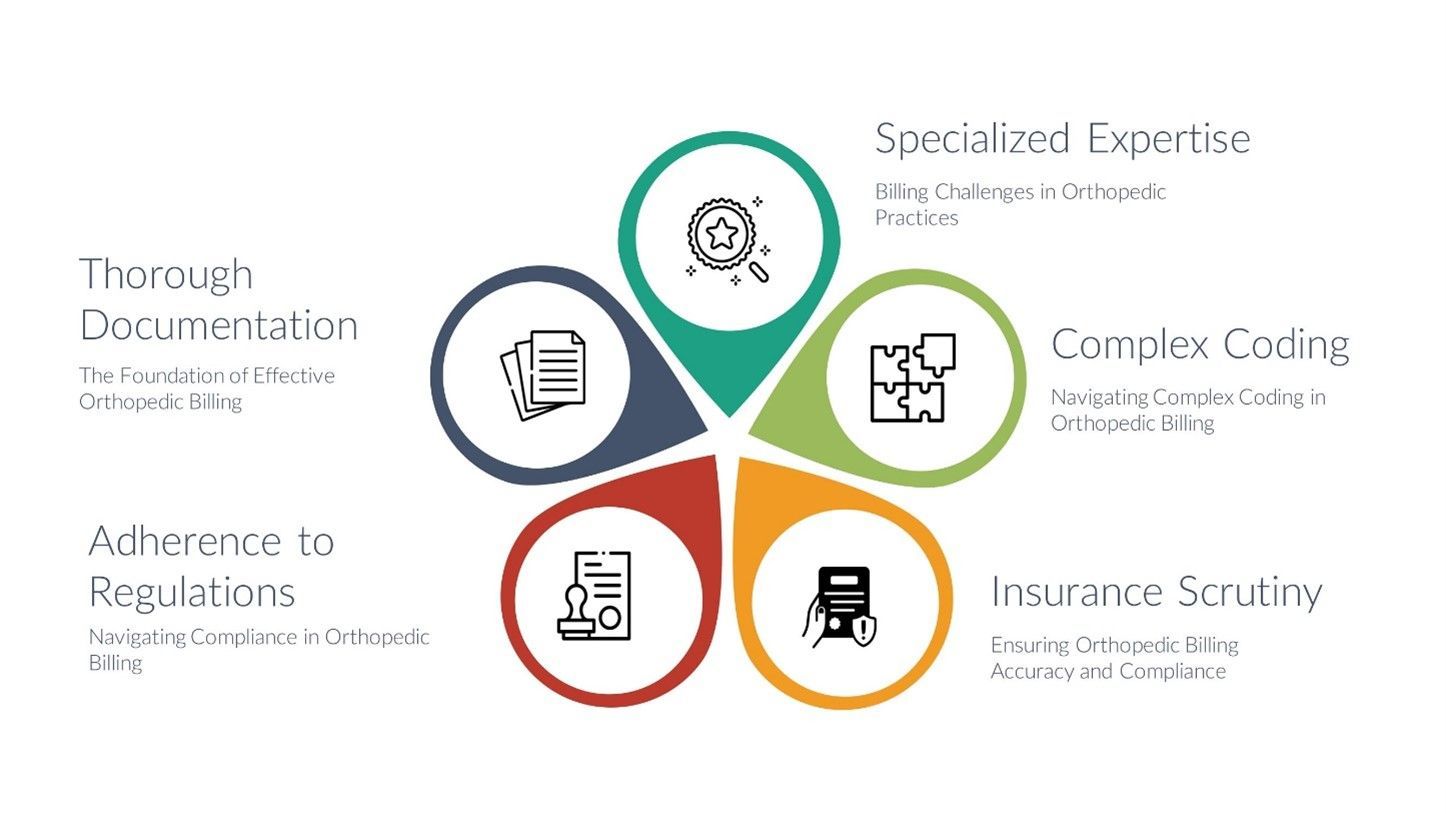TEL: (818) 907-7828 | EMAIL: sharon@statmedical.net
Orthopedic Medical Billing Services vs. General Medical Billing: Unraveling the Differences
Orthopedic Billing Services: A Comprehensive Guide to Specialized Billing
Medical billing is an essential component of the healthcare industry, ensuring healthcare providers receive rightful compensation for their services. However, the landscape of medical billing is not uniform; it varies considerably based on medical specialties. In this comprehensive exploration, we will dissect the distinctions between Orthopedic Medical Billing Services and General Medical Billing. By unraveling these differences, we aim to empower healthcare professionals and patients with insights into the intricacies of these two practices, with a specific focus on "Orthopedic medical billing services."
Orthopedic Medical Billing Services
Orthopedic medical billing services cater exclusively to the field of orthopedics, which is dedicated to musculoskeletal conditions such as bones, joints, ligaments, and tendons. Here are the pivotal aspects that set Orthopedic Medical Billing Services apart:

Specialized Expertise: Handling orthopedic medical billing demands specialized knowledge of orthopedic procedures, diagnoses, and medical codes. The biller or coder must possess a deep understanding of the specific terminology and nuances within orthopedics.
Complex Coding: Orthopedics entails a complex coding system, including CPT (Current Procedural Terminology) codes, ICD-10 (International Classification of Diseases) codes, and HCPCS (Healthcare Common Procedure Coding System) codes. Pinpoint accuracy in coding is imperative to ensure accurate reimbursement.
Insurance Scrutiny: Due to the potentially high costs associated with orthopedic treatments, meticulous insurance verification is indispensable. Billers must rigorously verify patients' insurance coverage to determine which services fall under coverage and which do not.
Thorough Documentation: Accurate documentation of each service or procedure performed is pivotal. Orthopedic procedures often necessitate comprehensive records to substantiate medical necessity. Any inconsistencies in documentation can lead to claim denials.
Adherence to Regulations: Orthopedic medical billing services must adhere stringently to coding and regulatory guidelines stipulated by HIPAA, CMS, AMA, and insurance companies. Non-compliance could entail substantial fines or penalties, underscoring the significance of adhering to these regulations for a seamless revenue cycle.
Here are just a few examples of Orthopedic coding when billing for arthroscopic vs. open procedures, of the knee and shoulder.
Diagnostic vs. Surgical Arthroscopy
Diagnostic arthroscopy is not separately reportable; only surgical arthroscopy can be billed if performed during the same patient encounter.
If diagnostic arthroscopy leads to an open procedure, it may be separately reportable.
Use modifier -58 when staging diagnostic and therapeutic procedures for Medicare billing with medical necessity documented.
Conversion from Arthroscopic to Open Procedure
If arthroscopic surgery is converted to an open procedure, only the open procedure is reported.
Debridement and Chondroplasty
Arthroscopic debridement should not be reported separately with surgical arthroscopy, except for the knee and shoulder.
Codes 29874 and 29877 should not be reported with other knee arthroscopy codes.
HCPCS Code G0289
Can be reported with other knee arthroscopy codes except for codes 29880 and 29881.
Not for use in the same compartment as another knee arthroscopic procedure.
Shoulder Arthroscopy
Limited and extensive debridement are included in shoulder arthroscopy procedures, except for specific exceptions.
Codes 29824, 29827, and 29828 may be reported separately with extensive debridement (29823) if performed in a different area of the same shoulder.
Knee Synovectomy
Synovectomy may be reported with codes 29875 or 29876.
Code 29875 should not be reported with another arthroscopic knee procedure on the same knee.
Code 29876 can be reported for a synovectomy in 2 compartments when no other arthroscopic procedure is performed in those compartments.
General Medical Billing
General medical billing encompasses a broader spectrum of medical services and does not specialize in a particular medical field. Here are the salient aspects of general medical billing:
Diverse Services: General medical billing covers a wide array of medical services, ranging from primary care to specialized treatments. Billing specialists manage claims across various medical specialties.
Standardized Procedures: Billing for general medical services adheres to standardized procedures, including patient registration, claim generation, and submission. While complexities exist, they generally do not reach the same level of specialization as in orthopedic billing.
Insurance Processing: Insurance verification and processing are standard, but the scope of services can vary widely. Patients are informed of any procedures or services not covered by insurance.
Coding Complexity: General medical billing involves medical coding, but it may not reach the same level of complexity as in orthopedics. Coding systems remain essential but may not require the same level of specialization.
Claim Adjudication: Claim adjudication processes remain consistent, with payers evaluating medical claims for validity and compliance. Claims can be accepted, rejected, or denied based on standard criteria.
Conclusion:
In summary, the defining difference between Orthopedic Medical Billing Services and General Medical Billing lies in the degree of specialization and complexity. Orthopedic billing demands specialized knowledge of orthopedic procedures, intricate coding, and meticulous documentation. It also places substantial emphasis on insurance verification due to the potential high costs involved.
Conversely, General Medical Billing encompasses a wide spectrum of medical services, adhering to standardized procedures and coding practices. While both fields require compliance with regulations, orthopedic billing exhibits a higher degree of specialization.
When selecting the right billing service for your practice, it is crucial to consider the nature of your medical services. For practitioners in the field of orthopedics, specialized Orthopedic Medical Billing Services such as Stat Medical Consulting can offer expertise in navigating the intricacies of this specialty. This expertise leads to more efficient billing processes, higher reimbursement rates, and strict compliance with regulations.



Address:
Stat Medical Consulting, Inc
22801 Ventura Boulevard, Suite 211, Woodland Hills, CA 91364
Email: sharon@statmedical.net
Phone:
818-907-7828

Stat Medical Consulting, Inc







